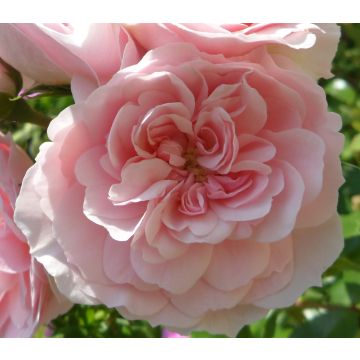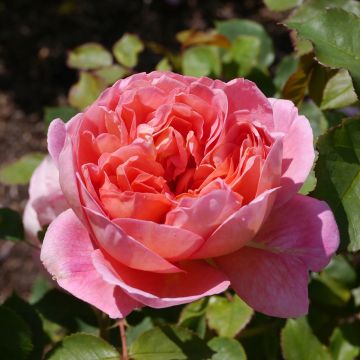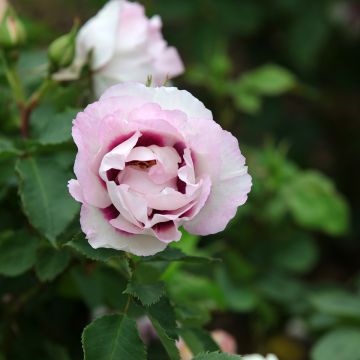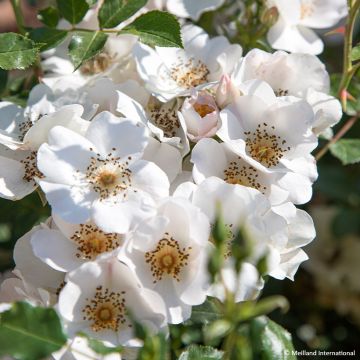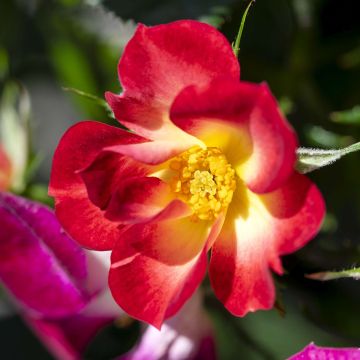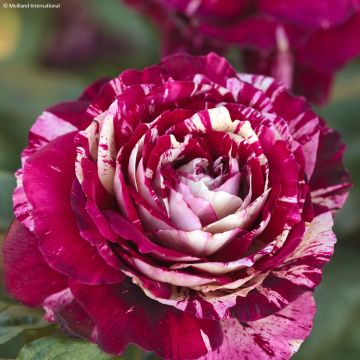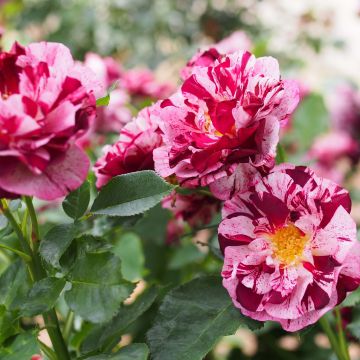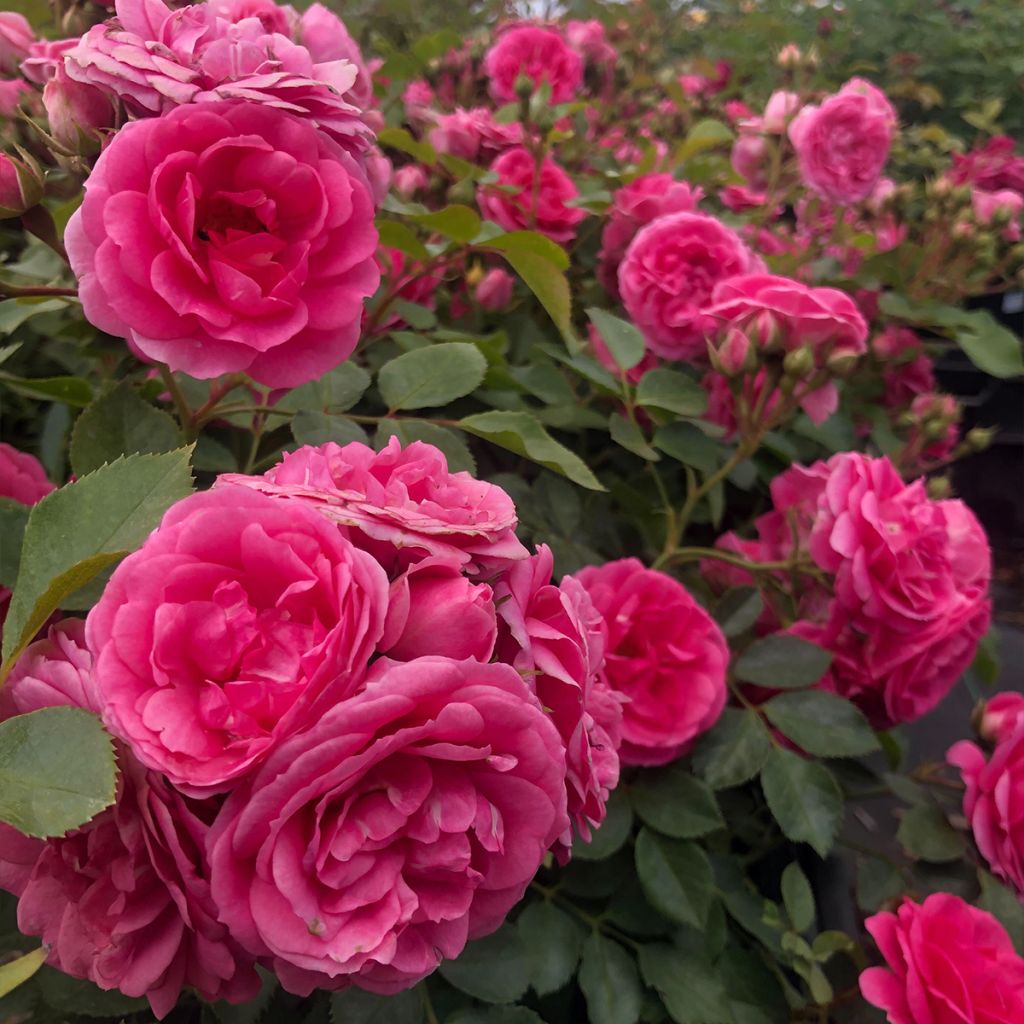

Rosa x floribunda 'Amica' Rigo Rosen - Groundcover Rose
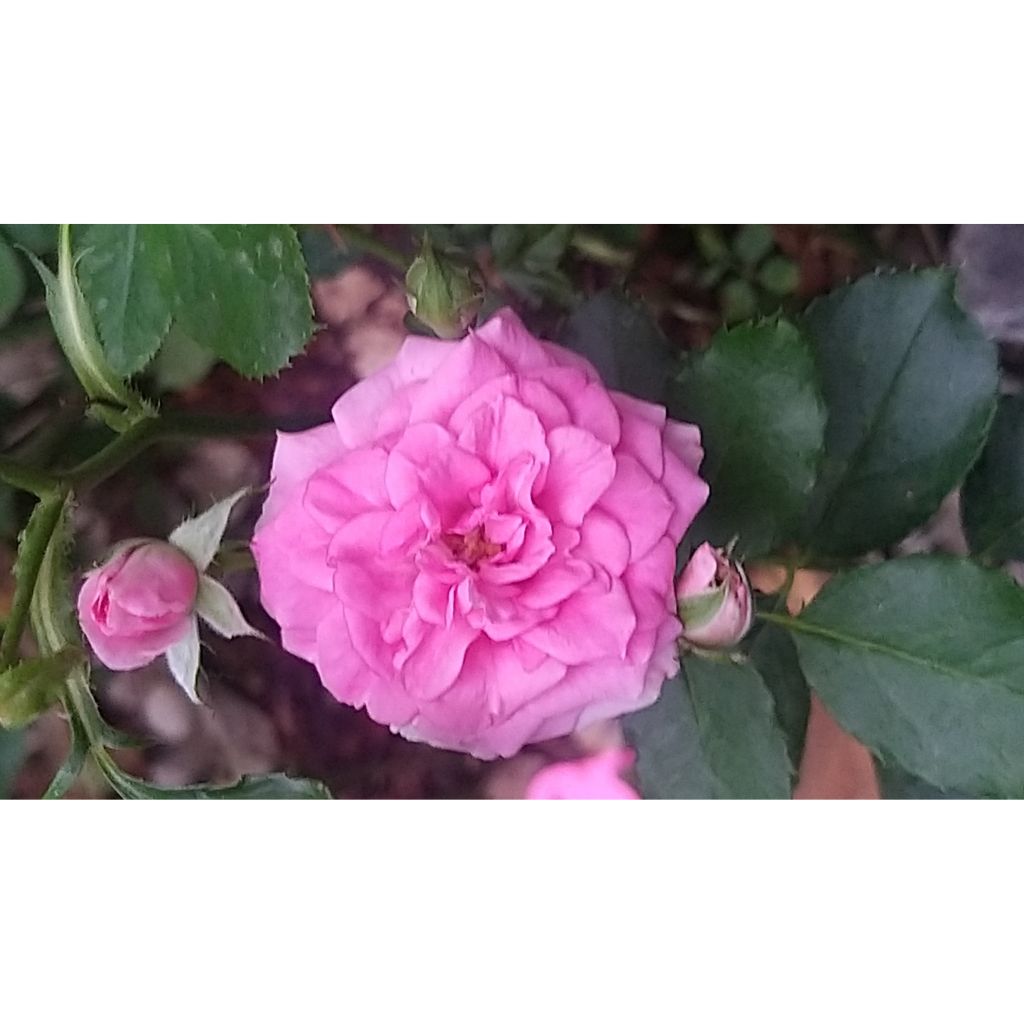

Rosa x floribunda 'Amica' Rigo Rosen - Groundcover Rose
Rosa x floribunda 'Amica' Rigo Rosen - Groundcover Rose
Rosa x floribunda Rigo Rosen® Amica® 'KORnerucas'
KORnerucas
This item cannot be shipped to the selected country
Delivery charge from €5.90
Delivery charge from €5.90
Delivery charge from €5.90
Delivery to Corse prohibited
More information
Schedule delivery date,
and select date in basket
This plant carries a 24 months recovery warranty
More information
We guarantee the quality of our plants for a full growing cycle, and will replace at our expense any plant that fails to recover under normal climatic and planting conditions.
From €5.90 for pickup delivery and €6.90 for home delivery
Express home delivery from €8.90.
From €5.90 for pickup delivery and €6.90 for home delivery
Express home delivery from €8.90.
From €5.90 for pickup delivery and €6.90 for home delivery
Express home delivery from €8.90.
Delivery to Corse prohibited: UE law prohibits the import of this plant from mainland France to Corse as part of the fight against Xylella fastidiosa. Please accept our sincere apologies.
More information


Does this plant fit my garden?
Set up your Plantfit profile →
Description
The Rigo Rosen 'Amica' bush is a delightful, generous and easy-to-grow bush that will find its place in all flower gardens, even the smallest ones, and enhance any balcony. With its bouquets of small double flowers in shades of pink, highlighted by beautiful foliage, and its naturally compact growth, this variety forms beautiful ground cover that flowers for months. Very hardy, extraordinarily floriferous and almost maintenance-free, this rose is simply perfect.
The 'Amica' rose or 'KORnerucas' is a German creation by Kordes, introduced to the market in 2019, but distinguished by the highly selective German A.D.R label since 2017. It is part of a series of roses, the 'Rigo Rosen', selected for their exceptional disease resistance and ability to flower enthusiastically, even in rainy and sunless regions. All Rigo-Roses have obtained the ADR label. This variety 'Amica' belongs to the floribunda rose family and the ground cover rose category due to its low, dense and spreading habit. It quickly forms a cushion of about 50 cm (20in) in all directions. It is covered with a beautiful dark green, decorative foliage, divided into small leaflets that are finely toothed along the edge. Its flowering is abundant and continuous from June to October if the soil remains slightly moist in summer. Its 4 cm (2in) wide corollas are fully double and composed of numerous petals gathered in bouquets. The petals change from bright pink to pale pink, giving the flower a delightful gradient of pink colour. The deciduous foliage falls in autumn.
The 'Amica' ground cover rose adapts to all soils that are not too dry and to all climates, which allows it to be planted almost anywhere. It looks simply stunning in a planter on the patio as a border, in a flower bed, or on a large slope where it will cover the ground. It can also be planted in groups of 3 plants, arranged in a triangle, isolated on a lawn. Plant it in mass or combine it with white or mauve ground cover roses to highlight the design of a pathway or the mass plantings of light or opulent shrubs and perennials. For example, it can be paired with perennial geraniums (Geranium Blue Cloud, Anne Folkard, Nimbus, Orion), bellflowers (lactiflora, rapunculoides), catmints, delphiniums, foxgloves or other perennial salvias. It blends perfectly with shrub roses with pink or white flowers in a romantic garden.
Report an error about the product description
Rosa x floribunda 'Amica' Rigo Rosen - Groundcover Rose in pictures
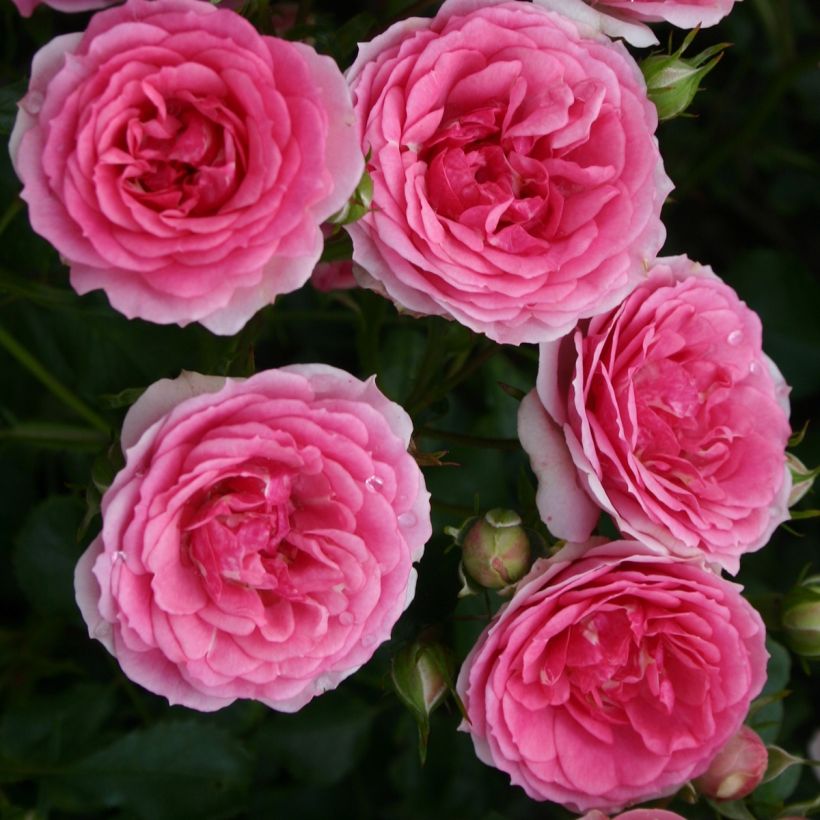

Plant habit
Flowering
Foliage
Botanical data
Rosa
x floribunda
Rigo Rosen® Amica® 'KORnerucas'
Rosaceae
KORnerucas
Cultivar or hybrid
Rosa canina Laxa (3L/4L pot, Wrapped bare root)
Other Polyantha clustered Roses
Planting and care
To grow the 'Amica' rose, plant it in well-drained soil between November and March. Choose a sunny spot with partial shade. Roses prefer soil that is slightly heavy and clayey. If the soil is sandy, compact, or dry in summer, add compost or well-rotted manure at the bottom of the planting hole. Don't plant the rose in waterlogged soil during winter. Use specific fertiliser at the beginning of the vegetation period and regularly during the flowering period to provide the nutrients roses need. To encourage repeat flowering remove faded flowers regularly. In late winter, prune the stems by about a quarter of their length, leaving 4 to 6 buds from the base of the stem. To encourage bushy growth and prevent branches from tangling in the centre of the branches, always prune above an outward-facing bud. Floribunda and polyantha rose varieties are more vigorous and have more flowers than large-flowered rose varieties.
Roses may develop unsightly spots at the end of summer, but this is a natural occurrence and doesn't harm the rose's growth.
Planting period
Intended location
Care
-
, onOrder confirmed
Reply from on Promesse de fleurs
Roses by purpose
Haven't found what you were looking for?
Hardiness is the lowest winter temperature a plant can endure without suffering serious damage or even dying. However, hardiness is affected by location (a sheltered area, such as a patio), protection (winter cover) and soil type (hardiness is improved by well-drained soil).

Photo Sharing Terms & Conditions
In order to encourage gardeners to interact and share their experiences, Promesse de fleurs offers various media enabling content to be uploaded onto its Site - in particular via the ‘Photo sharing’ module.
The User agrees to refrain from:
- Posting any content that is illegal, prejudicial, insulting, racist, inciteful to hatred, revisionist, contrary to public decency, that infringes on privacy or on the privacy rights of third parties, in particular the publicity rights of persons and goods, intellectual property rights, or the right to privacy.
- Submitting content on behalf of a third party;
- Impersonate the identity of a third party and/or publish any personal information about a third party;
In general, the User undertakes to refrain from any unethical behaviour.
All Content (in particular text, comments, files, images, photos, videos, creative works, etc.), which may be subject to property or intellectual property rights, image or other private rights, shall remain the property of the User, subject to the limited rights granted by the terms of the licence granted by Promesse de fleurs as stated below. Users are at liberty to publish or not to publish such Content on the Site, notably via the ‘Photo Sharing’ facility, and accept that this Content shall be made public and freely accessible, notably on the Internet.
Users further acknowledge, undertake to have ,and guarantee that they hold all necessary rights and permissions to publish such material on the Site, in particular with regard to the legislation in force pertaining to any privacy, property, intellectual property, image, or contractual rights, or rights of any other nature. By publishing such Content on the Site, Users acknowledge accepting full liability as publishers of the Content within the meaning of the law, and grant Promesse de fleurs, free of charge, an inclusive, worldwide licence for the said Content for the entire duration of its publication, including all reproduction, representation, up/downloading, displaying, performing, transmission, and storage rights.
Users also grant permission for their name to be linked to the Content and accept that this link may not always be made available.
By engaging in posting material, Users consent to their Content becoming automatically accessible on the Internet, in particular on other sites and/or blogs and/or web pages of the Promesse de fleurs site, including in particular social pages and the Promesse de fleurs catalogue.
Users may secure the removal of entrusted content free of charge by issuing a simple request via our contact form.
The flowering period indicated on our website applies to countries and regions located in USDA zone 8 (France, the United Kingdom, Ireland, the Netherlands, etc.)
It will vary according to where you live:
- In zones 9 to 10 (Italy, Spain, Greece, etc.), flowering will occur about 2 to 4 weeks earlier.
- In zones 6 to 7 (Germany, Poland, Slovenia, and lower mountainous regions), flowering will be delayed by 2 to 3 weeks.
- In zone 5 (Central Europe, Scandinavia), blooming will be delayed by 3 to 5 weeks.
In temperate climates, pruning of spring-flowering shrubs (forsythia, spireas, etc.) should be done just after flowering.
Pruning of summer-flowering shrubs (Indian Lilac, Perovskia, etc.) can be done in winter or spring.
In cold regions as well as with frost-sensitive plants, avoid pruning too early when severe frosts may still occur.
The planting period indicated on our website applies to countries and regions located in USDA zone 8 (France, United Kingdom, Ireland, Netherlands).
It will vary according to where you live:
- In Mediterranean zones (Marseille, Madrid, Milan, etc.), autumn and winter are the best planting periods.
- In continental zones (Strasbourg, Munich, Vienna, etc.), delay planting by 2 to 3 weeks in spring and bring it forward by 2 to 4 weeks in autumn.
- In mountainous regions (the Alps, Pyrenees, Carpathians, etc.), it is best to plant in late spring (May-June) or late summer (August-September).
The harvesting period indicated on our website applies to countries and regions in USDA zone 8 (France, England, Ireland, the Netherlands).
In colder areas (Scandinavia, Poland, Austria...) fruit and vegetable harvests are likely to be delayed by 3-4 weeks.
In warmer areas (Italy, Spain, Greece, etc.), harvesting will probably take place earlier, depending on weather conditions.
The sowing periods indicated on our website apply to countries and regions within USDA Zone 8 (France, UK, Ireland, Netherlands).
In colder areas (Scandinavia, Poland, Austria...), delay any outdoor sowing by 3-4 weeks, or sow under glass.
In warmer climes (Italy, Spain, Greece, etc.), bring outdoor sowing forward by a few weeks.

































